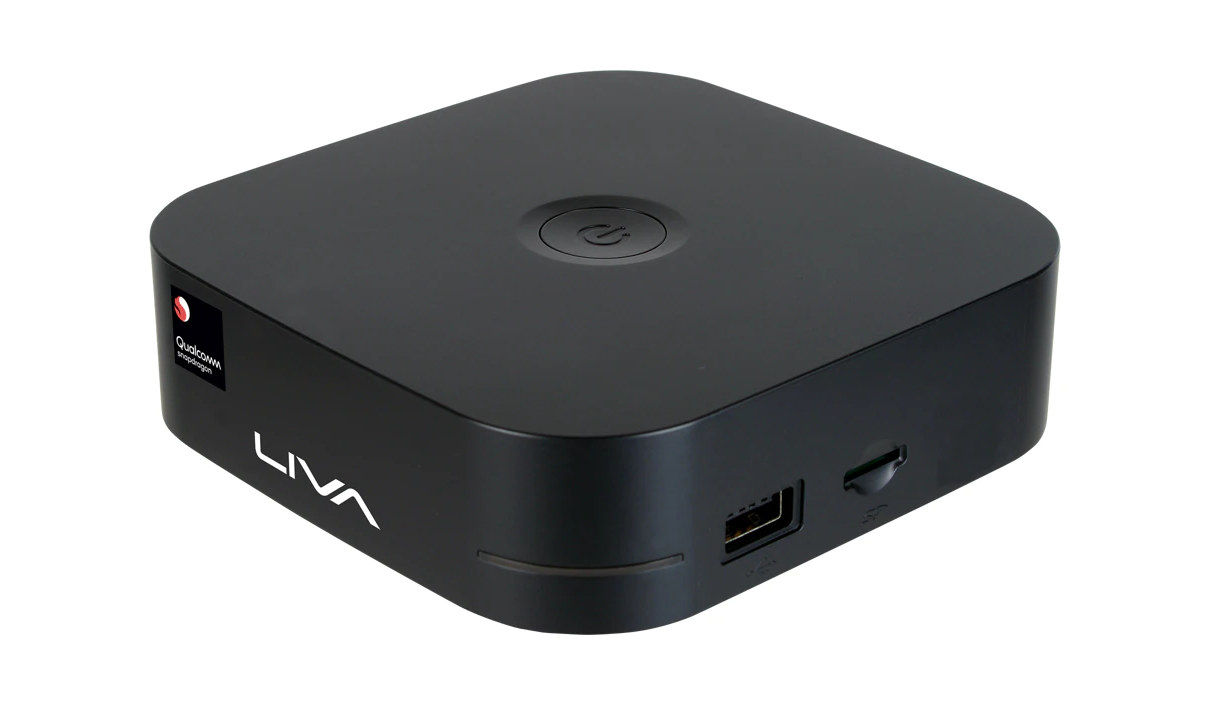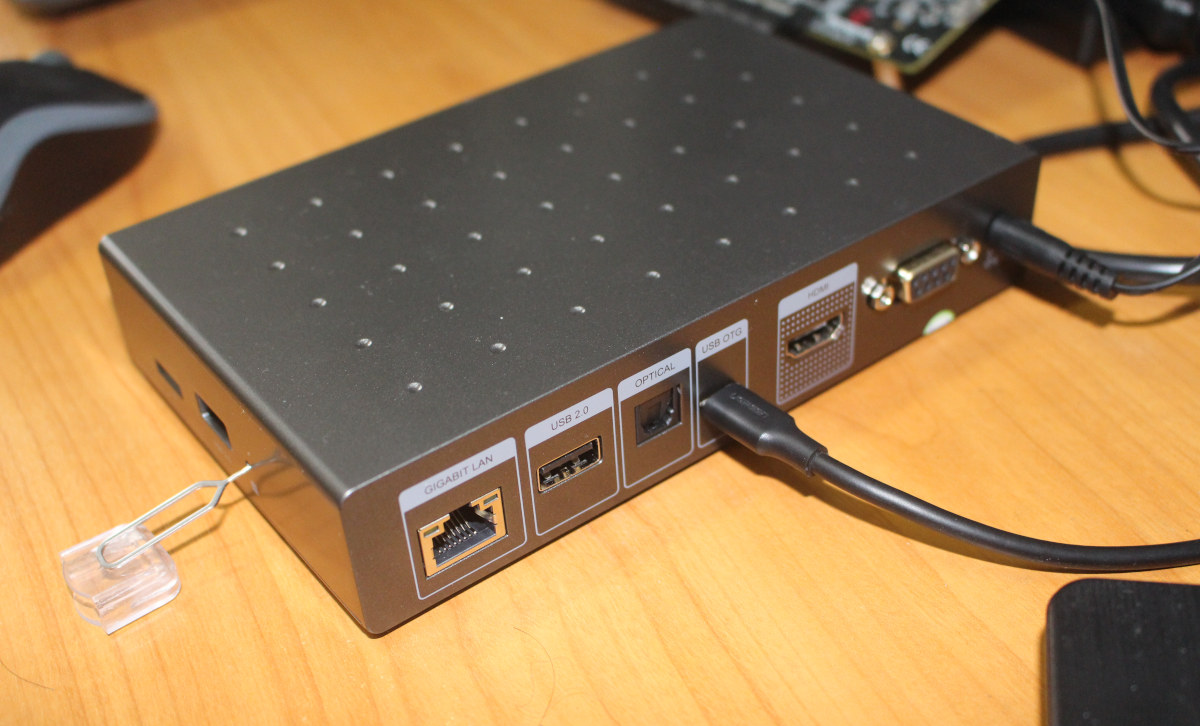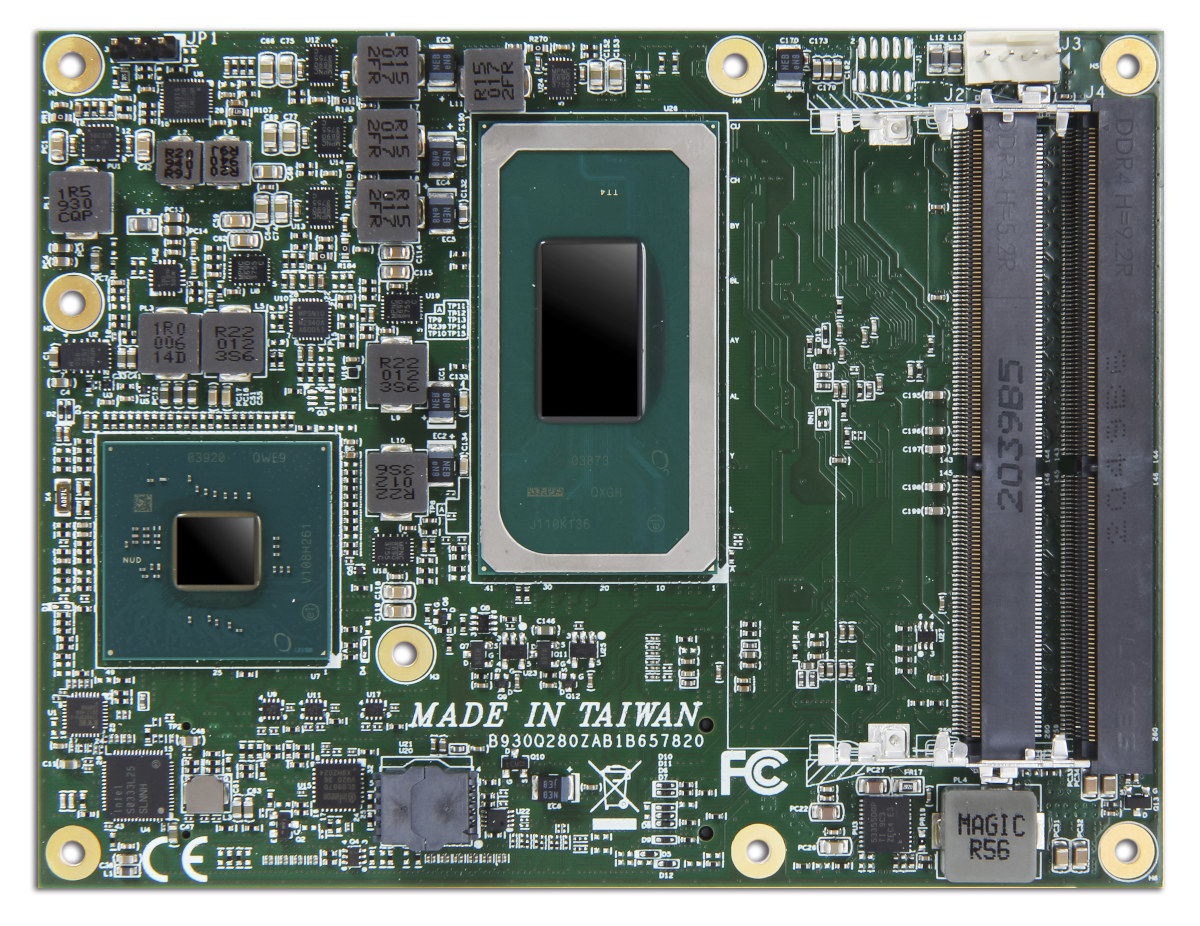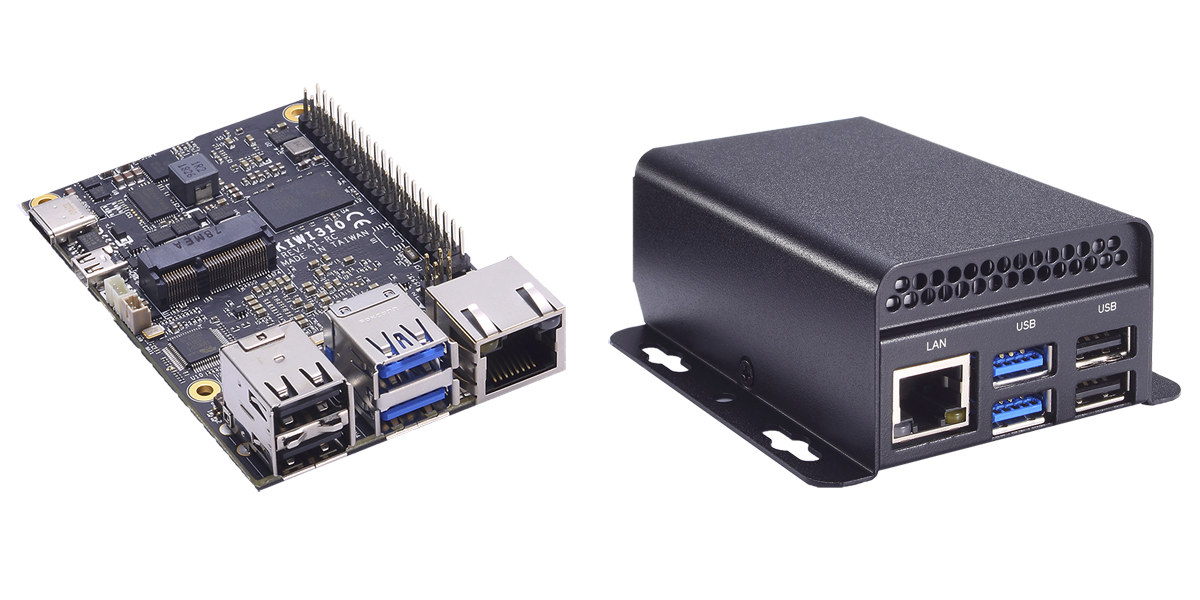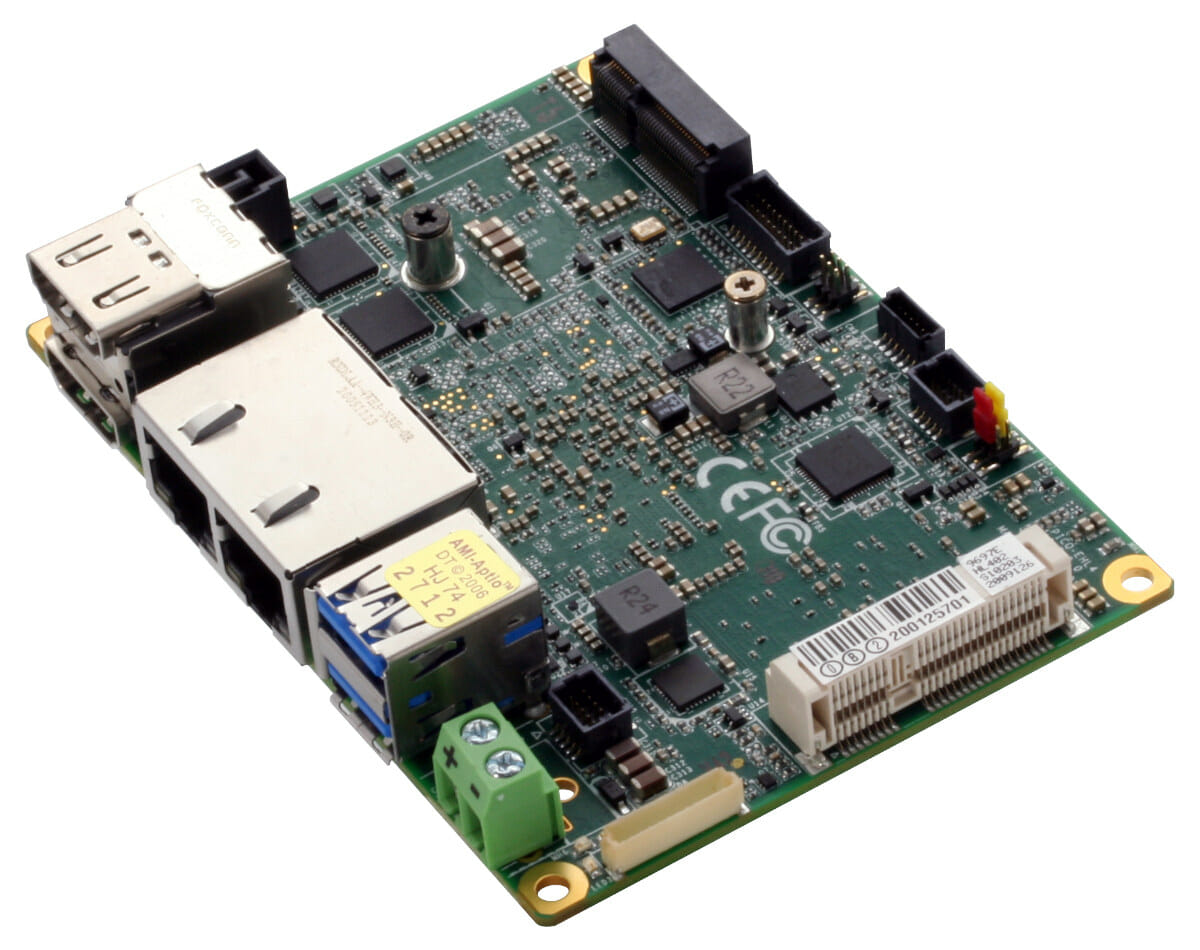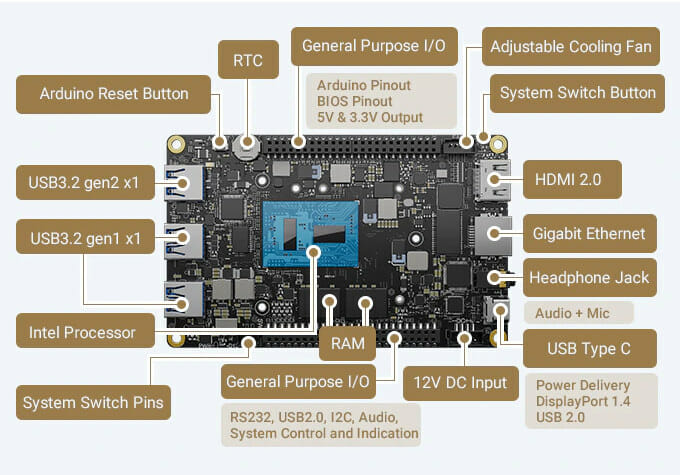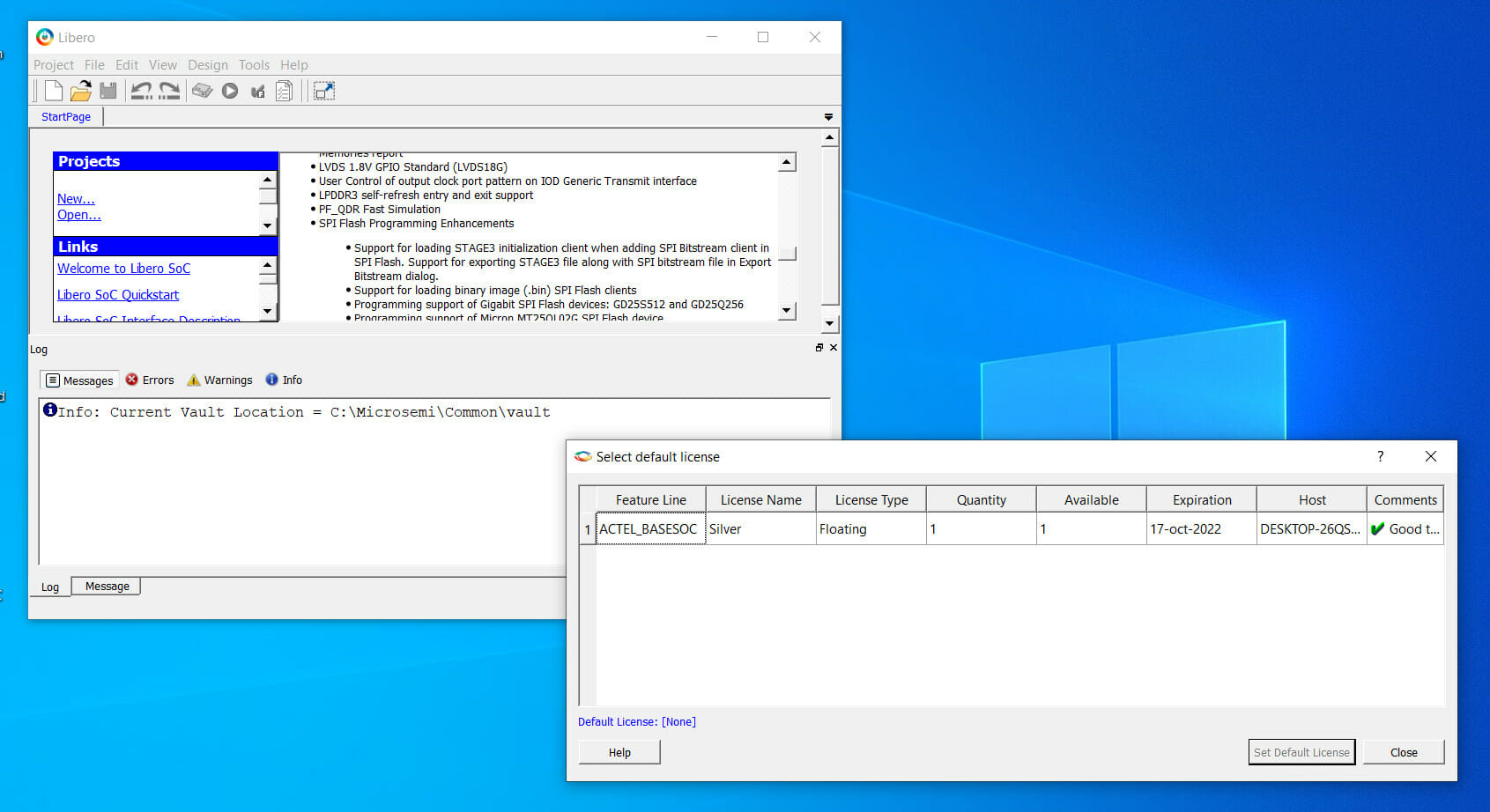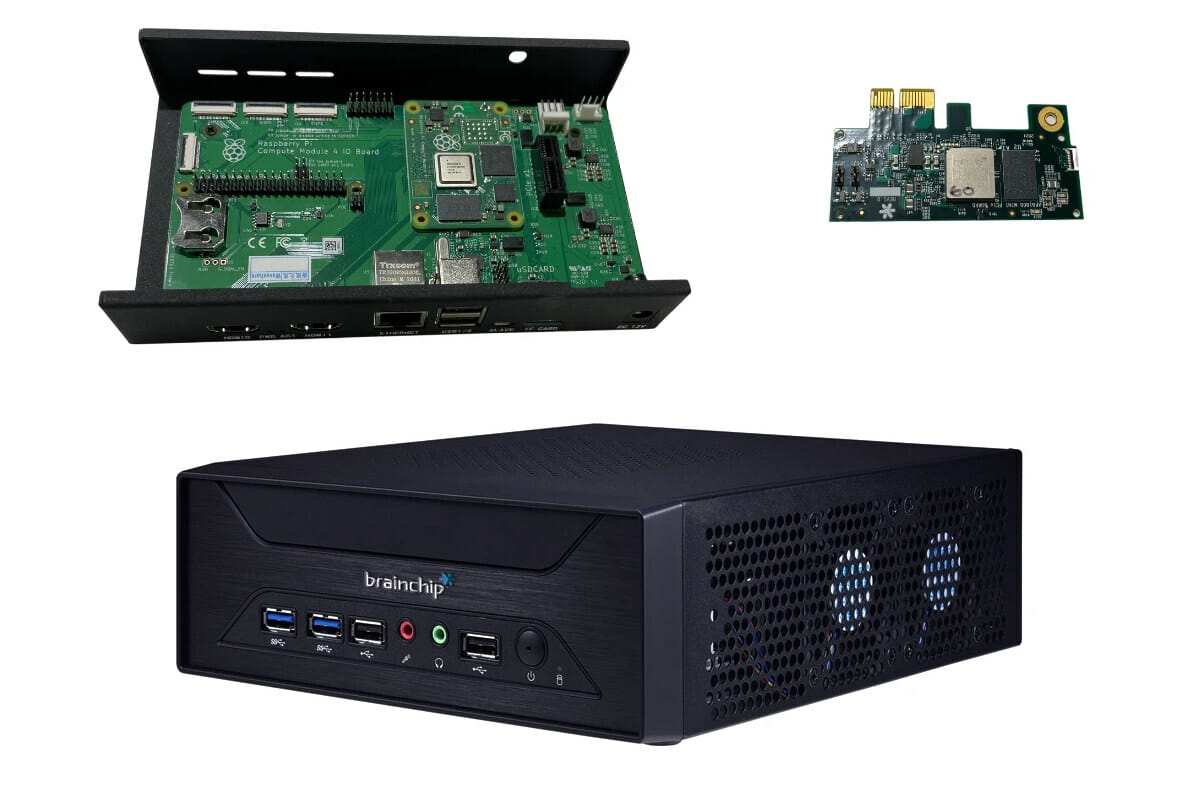The “Snapdragon QC710 Developer Kit” for Windows 10 on Arm app development was unveiled last May, and it’s now available for $219 on Microsoft Store as the “ECS LIVA Mini Box QC710 Desktop”. The developer kit can also be purchased at a discount for $197.10 by students, parents(!), teachers, and members of the military. I suppose this applies only to the US military and showing your Taliban membership card may not work. The developer kit looks like a standard mini PC and features a Qualcomm Snapdragon 7c Compute Platform (SC7180), 4GB RAM, 64GB eMMC flash, HDMI output, 10/100M Ethernet and WiFi 5, and several USB ports. ECS LIVA Mini Box QC710 Desktop specifications: SoC – Qualcomm Snapdragon 7c Compute Platform (SC7180) with octa-core Qualcomm Kryo 468 (2x Cortex-A76, 6x Cortex-A55) CPU @ up to 2.4 GHz, Adreno 618 GPU System Memory – 4GB Storage – 64GB eMMC flash, MicroSD card […]
How to flash firmware to Rockchip devices in Windows and Linux (2021 Edition)
We’ve written several articles detailing methods to flash firmware to Rockchip devices in Windows or Linux over the years, with tools like RKAndroidTool, RkFlashKit, upgrade_tool, or the open-source rkdeveloptool utility. This is mostly useful to flash another OS or if the device does not boot, as most products will now support OTA firmware updates. But following my review of Zidoo M6 with Android 11, I’ve now got a Linux image for the Rockchip RK3566 mini PC, so let’s revisit the firmware flashing methods in 2021. Zidoo sent me instructions for Windows, but since I’m a Ubuntu user, I flashed the firmware with the Linux tools used by Firefly. The same methods should work for the older processors such as RK3066, RK3288, and RK3399, besides the more recent Rockchip RK3566 and RK3568 processors. How to flash Rockchip firmware in Linux [Important update: If your device comes with both eMMC flash and […]
Portwell COM Express Tiger Lake-H module supports 2.5GbE, PCIe Gen 4, 8K, up to 64GB DDR4
Portwell PCOM-B657VGL joins other COM Express and COM HPC modules based on Intel Tiger Lake-H Xeon, Core, and Celeron embeddded processors such as ADLINK Express-TL and Congatec conga-HPC/cTLH. Just like its competitors, the Portwell COM Express Type 6 Basic module offers 8K video output, PCIe x16 Gen 4, up to 64GB DDR4, USB 3.2 Gen 2, and 2.5GbE networking for a wide range of higher-end embedded applications such as industrial automation, medical equipment, graphics-intensive applications, and artificial intelligence. Portwell PCOM-B657VGL specifications: SoC (one or the other) General Embedded Intel Celeron 6600HE dual-core processor @ 2.6GHz with 8MB L3 Cache, 16EU Intel UHD graphics, 35W TDP Intel Core i3-11100HE processor with 4 cores / 8 threads @ 2.4GHz (up to 4.4GHz in Turbo Boost) with 8MB L3 Cache, 16EU Intel UHD graphics, 45/35W cTDP Intel Core i5-11500HE processor with 6 cores / 12 threads @ 2.6GHz (up to 4.1GHz in Turbo […]
Raspberry Pi inspired Intel SBC supports Myriad X AI accelerator, 5G connectivity
Axiomtek KIWI310 may look like a Raspberry Pi SBC but it packs an Intel Celeron N3350 processor, an M.2 slot with support for Myriad X AI accelerator, and the company also offer a HAT with 5G cellular connectivity. The single board computer also comes with up to 4GB LPDDR4 memory, up to 64GB eMMC flash, a Micro HDMI port, two USB 3.0 and two USB 2.0 ports, as well as the ubiquitous 40-pin GPIO header. Power options are also an improvement over your typical Raspberry Pi board with USB-C PD as well as LiPo battery support. Axiomtek KIWI310 specifications: SoC – Intel Celeron N3350 dual-core Apollo Lake processor @ 1.1 GHz / 2.4 GHz (Turbo) with Intel HD Graphics 500; 6W TDP System Memory – Up to 4GB (specs) or 8GB (YouTube video) LPDDR4 Storage – Up to 64GB eMMC flash, SPI flash for AMI BIOS Video & audio output […]
PICO-EHL4 Pico-ITX SBC features Elkhart Lake CPU for IoT Edge applications
AAEON PICO-EHL4 is a Pico-ITX single board computer based on Intel Atom x6000E, Celeron and Pentium “Elkhart Lake” processors designed for IoT edge applications. The SBC supports up to 16 GB LPDDR4 RAM via two SO-DIMM sockets as well as eMMC and SATA storage, offers two HDMI 2.0b video outputs, dual Gigabit Ethernet, two USB 3.0 interfaces, as well expansion capabilities via mini PCIe and M.2 sockets. AAEON PICO-EHL4 specifications: Elkhart Lake SoC Atom x6425RE quad-core @ up to 1.9GHz; 12W TDP Atom x6414RE quad-core @ up to 1.5GHz, 9W TDP Atom x6212RE dual-core @ up to 1.2GHz; 6W TDP Atom x6425E quad-core @ up to 1.8GHz, up to 3GHz; 12W TDP Atom x6413E quad-core @ 1.5GHz, up to 3GHz; 9W TDP Atom x6211E dual-core @ 1.2GHz, up to 3GHz; 6W TDP Pentium J6426 quad-core @ 1.8GHz, up to 3GHz; 10W TDP Pentium N6415 quad-core @ 1.2GHz, up to 3GHz; […]
LattePanda 3 Delta SBC combines Celeron N5105 SoC with Arduino (Crowdfunding)
LattePanda 3 Delta is the new version of the x86 + Arduino board introduced in 2015 with an Intel Atom x5-Z8300 processor, and followed by LattePanda Alpha/Delta in 2017 with respectively Kaby Lake and Gemini Lake processors. The new LattePanda 3 Delta brings some serious performance boost with an Intel Celeron N5105 quad-core Jasper Lake processor that doubles the CPU performance, triples the GPU speed, and enables smooth 4K HDR video playback. Plus no vaccine is required that for that delta variant! 😉 LattePanda 3 Delta specifications: SoC – Intel Celeron N5105 quad-core Jasper Lake processor @ 2.0GHz / 2.9GHz (Turbo) with Intel UHD graphics 605; 10W TDP System Memory – 8GB LPDDR4 @ 2933 MHz Storage 64GB eMMC flash M.2 M Key socket for NVMe SSD M.2 B Key socket for SATA SSD MicroSD card socket MCU – Arduino Leonardo compatible Video Output HDMI 2.0 DisplayPort via USB Type-C […]
My experience installing Libero SoC in Ubuntu and Windows 10
A few weeks ago, I received Microchip PolarFire SoC FPGA Icicle Kit with FPGA fabric and hard RISC-V cores capable of handling Linux. I wrote “Getting Started with Yocto Linux BSP” tutorial for the board, and I had initially titled the current post “Getting Started with FPGA development using Libero SoC and Polarfire FPGA SoC”. I assumed I would write one or two paragraphs about the installation process, and then show how to work with Libero SoC Design Suite to create an FPGA bitstream. But instead, I spent countless hours trying to install the development tools. So I’ll report my experience to let readers avoid some of the pitfalls, and hopefully save time. (Failing to) Install Libero SoC v2021.v2 on Ubuntu 20.04 If we go to the download page, we’ll see Libero SoC v2021.2 for Windows and Libero SoC v2021.2 for Linux. Since my computer is running Ubuntu 20.04, I decided […]
BrainChip AKD1000 SNN AI SoC gets Raspberry Pi and x86 development kits
BrainChip has introduced two development kits for its Akida AKD1000 neuromorphic processor based on Raspberry Pi and an Intel (x86) mini PC in order to enable partners, large enterprises, and OEMs to begin testing and validation of the Akida chip. BrainChip Akida neural relies on spiking neural networks (SNN) which enable high-performance, real-time inference at ultra-low power, notably much lower power than traditional AI chips relying on CNN (convolutional neural network) technology. Akida Development Kit based on Raspberry Pi CM4 Specifications: SoM – Raspberry Pi CM4 or CM4 Lite with SoC: Broadcom BCM2711C0 quad-core ARM Cortex-A72 (ARMv8-A) 64-bit @ 1.5GHz plus Broadcom VideoCore VI GPU RAM – 1GB, 2GB, 4GB, or 8GB LPDDR4 SDRAM Storage – MicroSD card for CM4 Lite, or 2GB to 32GB eMMC for CM4 Networking – Optional 2.4 GHz and 5 GHz 802.11b/g/n/ac Wi-Fi, Bluetooth 5.0 LE, Gigabit Ethernet PHY Carrier board – Official Raspberry Pi […]


